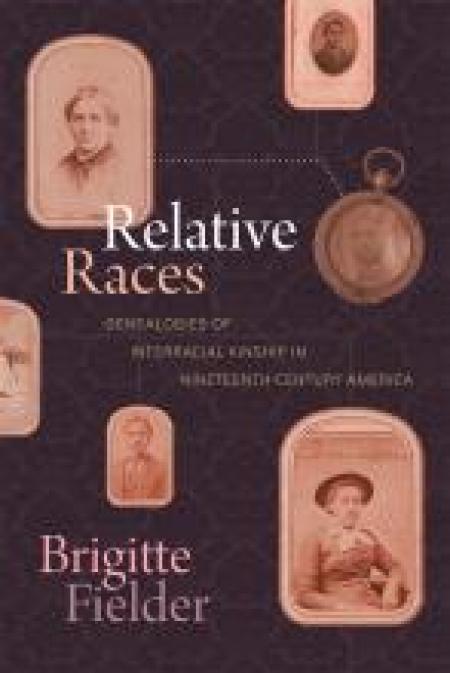
American Antiquarian Society
185 Salisbury Street
Worcester, MA 01609
United States
In Relative Races, Brigitte Fielder presents an alternative theory of how race is ascribed. Contrary to notions of genealogies by which race is transmitted from parents to children, the examples Fielder discusses from nineteenth-century literature, history, and popular culture show how race can follow other directions: Desdemona becomes less than fully white when she is smudged with Othello's blackface, a white woman becomes Native American when she is adopted by a Seneca family, and a mixed-race baby casts doubt on the whiteness of his mother. Fielder shows that the genealogies of race are especially visible in the racialization of white women, whose whiteness often depends on their ability to reproduce white family and white supremacy. Using black feminist and queer theories, Fielder presents readings of personal narratives, novels, plays, stories, poems, and images to illustrate how interracial kinship follows non-heteronormative, non-biological, and non-patrilineal models of inheritance in nineteenth-century literary culture.

Brigitte Fielder is an Associate Professor at the University of Wisconsin-Madison. Her research and teaching interests include early African American literature, nineteenth-century U.S. literature, race, gender, and sexuality studies, children’s literature and childhood studies, and human-animal studies. She is (with Jonathan Senchyne) co-editor of Against a Sharp White Background: Infrastructures of African American Print. Her first book, Relative Races: Genealogies of Interracial Kinship in Nineteenth-Century America was published by Duke University Press in 2020. She is currently working on a second book, on racialized human-animal relationships in the long nineteenth century.